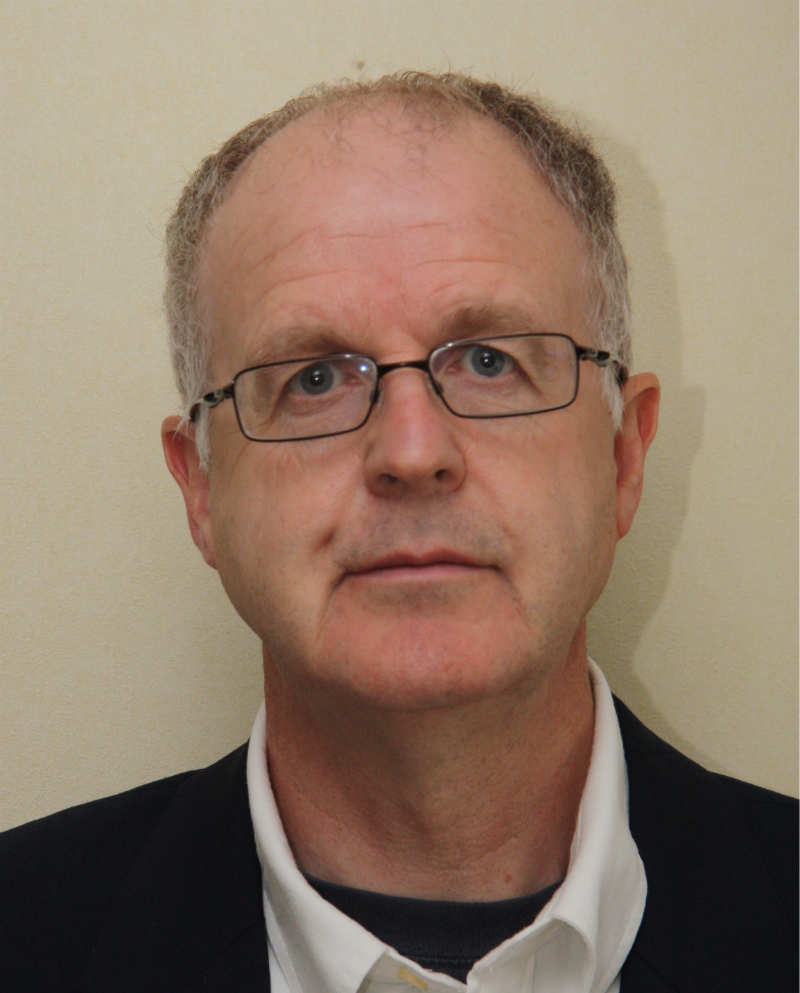Feature Articles
Open Source Product Development Most Effective When Social
 Benetech started out in the 90s without even understanding the meaning of the term open source. They just "needed an easy way to interface with different voice synthesizers" to develop readers for people who are blind and "shared the code to be helpful." Sound familiar? Opensource.com started covering stories like in 2010 and they recur more often than you might think. Stories of people sharing the code to help others—but sharing code to get help developing better code. When code is open, a community has the opportunity to form around it...
Benetech started out in the 90s without even understanding the meaning of the term open source. They just "needed an easy way to interface with different voice synthesizers" to develop readers for people who are blind and "shared the code to be helpful." Sound familiar? Opensource.com started covering stories like in 2010 and they recur more often than you might think. Stories of people sharing the code to help others—but sharing code to get help developing better code. When code is open, a community has the opportunity to form around it...
VistA Evolution: What's Wrong With this Picture?
 The VA has begun awarding a number of very high-value contracts under the umbrella of the VistA Evolution initiative (eg to ASM Research/Accenture), but in my opinion, there are problems looming on the horizon. From what I understand about the direction that these projects are taking (with encouragement, it seems, from within the VA), there’s a real risk that we’ll see a repeat of previous attempts to modernize VistA, the result of which was very expensive failure with essentially nothing to show for it. The losers, if this happens, are not only US taxpayers: it’s the Veterans whose future welfare depends on VistA4 being a success.
The VA has begun awarding a number of very high-value contracts under the umbrella of the VistA Evolution initiative (eg to ASM Research/Accenture), but in my opinion, there are problems looming on the horizon. From what I understand about the direction that these projects are taking (with encouragement, it seems, from within the VA), there’s a real risk that we’ll see a repeat of previous attempts to modernize VistA, the result of which was very expensive failure with essentially nothing to show for it. The losers, if this happens, are not only US taxpayers: it’s the Veterans whose future welfare depends on VistA4 being a success.
Physicians Prefer VistA-So Should Decision Makers
In their 2014 EHR Report—a survey of 18,575 physicians on their EHR preferences—Medscape concludes that doctors like using the VA’s Computerized Provider Record System (CPRS), the core electronic record in the broader VistA platform, more than any other solution. Here’s what they said, "The highest-rated EHR, with a score of 3.9, is the Veterans Administration EHR: VA-CPRS. It’s regarded as one of the best overall by our physician respondents"
Jeremy Rifkin Unveils a Return to the Local in an Interconnected Future
Jeremy Rifkin is always predicting an avalanche of change: substitutes for human labor in The End of Work, pervasive genetic engineering in Algeny, and so on. Several interlocking themes run through his latest book, The Zero Marginal Cost Society. Behind everything lies the renewed importance of local resources: local energy production, local manufacturing, local governance. And the Internet that ties us all together (evolving into the Internet of Things) will, ironically, bolster local power.
To explain this apparently contradictory evolution, let me summarize the main trends Rifkin covers in this book.
Patient Generated Data Goes Mainstream
Patient generated healthcare data is the next key frontier in care coordination, population health, and clinical research. Although Beth Israel Deaconess has invested significantly in home care, care management, and telemedicine, it has not yet made the commitment to be a leader in patient generated healthcare data... Read More »
Limitations of e-Prescribing Standards
Being able to write and route prescriptions electronically provides many advantages over the handwritten paper prescription process that inherently uses families as couriers. Nonetheless the current standards for e-prescribing have created a void that permits limitations in certified vendor software on both the prescribing and pharmacy receiving side. The result is that our patients are not yet benefiting from the full potential of eprescribing. Additional national standards for electronic prescription transmission are needed to provide the common ground needed by software vendors at each stage of the prescription life cycle... Read More »
Universal Language: The Pistoia Alliance Takes on Indescribable Biology
Best Practices WinnerThe Pistoia Alliance has previously sponsored new methods for querying databases and the scientific literature, and a more effective algorithm for compressing and sharing genetic sequencing data. Over the past year, another Pistoia project, HELM, has entered the public domain after gradual development by an assortment of Alliance members. An open source language and set of editing tools for working with large biomolecules, HELM has already become a foundational part of research in at least three large pharmaceutical companies. Read More »
The State of Accessibility in Linux and Open Source Software
 Spencer Hunley is an autistic professional, former Vice Chair of the Kansas City Mayor's Committee for People with Disabilities, and current board member of the Autism Society of the Heartland & ASAN's Kansas City chapter. In August, Spencer will be giving a talk, Universal Tux: Accessibility For Our Future Selves, at LinuxCon in Chicago. He also gave a talk, Maximizing Accessibility: Engaging People with Disabilities In The Linux Community, at LinuxCon North America 2013. In this interview, Spencer provides an update on the state of accessibility in Linux and open source software... Read More »
Spencer Hunley is an autistic professional, former Vice Chair of the Kansas City Mayor's Committee for People with Disabilities, and current board member of the Autism Society of the Heartland & ASAN's Kansas City chapter. In August, Spencer will be giving a talk, Universal Tux: Accessibility For Our Future Selves, at LinuxCon in Chicago. He also gave a talk, Maximizing Accessibility: Engaging People with Disabilities In The Linux Community, at LinuxCon North America 2013. In this interview, Spencer provides an update on the state of accessibility in Linux and open source software... Read More »
Notes on the July Meeting of the HIT Standards Committee
The July meeting of the HIT Standards Committee included important discussions of certification for post acute care and behavior health applications, review of data segmentation for privacy, analysis of provider directory standards, an update on the standards/interoperability framework projects, and a first look at the new subcommittee co-chairs of the Standards Committee... Read More »
Open Source to Make Caring for Your Health Feel Wonderful
Juhan Sonin wants to influence the world from protein, to policy, to pixel. And, he believes the only way to do that is with open source principles guiding the way. Juhan is the Creative Director at Involution Studios, a design firm educating and empowering people to feel wonderful by creating, developing, and licensing their work for the public. "We believe that any taxpayer funded effort should be made available, in its entirety, to be reused, modified, and updated by any citizen or business, hence the open source license. It should be a U.S. standard practice for contracted work." One of their works is hGraph, a visual representation of your health status, designed to help you alter individual factors to improve it... Read More »
Asciidoctor Coder Writes Less Documentation
 I've been working as the documentation manager for the Koha project for six and a half years, so when I saw that Sarah White would be talking about documentation at OSCON this year I knew I wanted a chance to interview her. Sarah will be giving a talk entitled Writing Documentation that Satisfies Your Users. Sarah believes in helping users succeed at solving their problems by working on and helping others write documentation for open source software, and I have to agree with her that one of the best parts of working on an open source project (not just writing the documentation) is getting to meet awesome people! Read More »
I've been working as the documentation manager for the Koha project for six and a half years, so when I saw that Sarah White would be talking about documentation at OSCON this year I knew I wanted a chance to interview her. Sarah will be giving a talk entitled Writing Documentation that Satisfies Your Users. Sarah believes in helping users succeed at solving their problems by working on and helping others write documentation for open source software, and I have to agree with her that one of the best parts of working on an open source project (not just writing the documentation) is getting to meet awesome people! Read More »
What is Open Knowledge and How Do You Spread It?
Beatrice Martini shared the work she does alongside a talented group working to bring openness to the world for Open Knowledge with me earlier this year. This time she tells me what it's like to bring to fruition an event like OKFestival 2014, organised by Open Knowledge. How does a gathering organized by one organisation (and a small team) reach out to the global ecosystem of open communities? How can participants co-create its message and mission?
Girls' Skills Are Needed in Tech
 ChickTech is based in Portland but plans to be nationwide by 2016. After interviewing Jennifer Davidson about how ChickTech gets girls involved in tech, I have high hopes it's even sooner. The non-profit targets girls who would never nominate themselves to participate in a tech workshop and who wouldn't dream of a career in tech. Why? Because they've never had someone believe their skills were valuable in that world...
ChickTech is based in Portland but plans to be nationwide by 2016. After interviewing Jennifer Davidson about how ChickTech gets girls involved in tech, I have high hopes it's even sooner. The non-profit targets girls who would never nominate themselves to participate in a tech workshop and who wouldn't dream of a career in tech. Why? Because they've never had someone believe their skills were valuable in that world...
Heliox Project to Assist Indigenous Communities Access Computers
Indigenous communities may benefit from new computer technology that allows them to access educational resources and the internet using their own language, says the software’s developer. The innovation comes from an international, interdisciplinary group that is currently working on using the technology to reduce the digital gap and help protect cultural diversity in Mexico. This effort is part of a wider project called Heliox, which is developing a free, inclusive operating system using a version of the existing fully open-source GNU/Linux system. Read More »
Pistoia Alliance Driving Open Innovation in Bioresearch
The Pistoia Alliance recently held its 4th Annual Conference at the Marriott Marquis in New York City. As part of the Next Chapter Initiative this was widened to a three-day event to include a special members-only meeting on the second day, kindly hosted by Thomson Reuters at their headquarters in Times Square, and a face-to-face board meeting hosted by Roche at the Alexandria Centre. Read More »